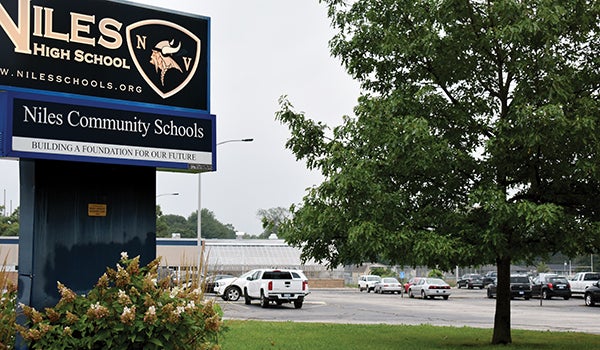Niles council concerned about plan to combine county’s public transit
Published 9:07 am Thursday, December 11, 2014
Several members of the Niles City Council have concerns about a plan to consolidate Berrien County’s public transportation services into a single countywide system.
Chief among them is the worry that Niles would get shortchanged by a central transit authority whose priorities might lie in the northern part of the county, leaving the south wanting for funding and services.
It stems from a long-held perception by Niles residents and Niles public officials that county officials have historically made decisions benefitting the north part of the county at the expense of the south.
No one spoke more loudly about this at Monday’s council meeting than Niles Councilman Scott Clark.
“When we send stuff to the county, we don’t see any services. You have no guarantees that we will keep getting it here,” he said. “I am afraid we will lose our service.”
Councilman Tim Skalla expressed concerns about who would sit on the central transit authority.
“We could easily have the same problems of underrepresentation for Niles,” he said, referring to the fact that Niles has two representatives on the 12-person county board of commissioners.
Evan Smith, general manager of Niles Dial-A-Ride-Transit, said to his knowledge Niles would be able to dictate its own terms if it decides to join the countywide transit system.
“This is not the county taking over our system,” he said. “I don’t feel like we would get shut out under this program.”
Dan Fette, the county’s community development director, said it is currently recommended that the central transit authority — called the Berrien County Transit Authority — would have nine members:
• One county commissioner
• One representative from each local transit authority (Niles DART, Buchanan DART, Twin Cities ATA)
• Five others representatives from around the county appointed by the county’s board of commissioners
“The staff recommendation is to try to create as even a distribution as possible so that no one region of the county dominates the authority,” Fette said, adding that the county is in the very beginning stages of the process.
The board of commissioners, he said, still needs to draft articles of incorporation to create the authority — a move that likely won’t happen until end of the first quarter of 2015.
Once created, Fette, said the authority would not replace or take away any existing local transit system.
“All the new authority will do initially is take over the Berrien Bus system, which operates outside of local transit systems,” he said.
From there, the authority would work with local municipalities to create the rules that would govern a countywide transportation system. At that point, each municipality could decide whether or not they want to opt in to the countywide system, Fette said.
The goal is to get everyone on board by the first part of 2016.
Berrien County is the only county in the state with four separate public transportation systems and is the only county of its size to have four systems in the entire country, according to Smith.
In an effort to improve the system, the Southwest Michigan Planning Commission conducted a study of the county’s public transportation in 2011. The plan to consolidate the services under one countywide authority came out of the study. It was first published in May.
Those backing the consolidated system believe it would close coverage gaps, reduce overall operation costs, reduce fares for users, reduce millage rates for jurisdictions that currently have a public transit service and increase overall efficiency.
“None of those things can happen under our existing structure,” Fette said.
In the coming months, public meetings will be held throughout the county with the intention of informing municipalities about the Berrien County Transit Authority and how it would affect them.
Potential benefits of countywide system:
• A Berrien County resident would no longer have to call two or possibly three transit systems to make one trip across the county. One call center would be created that would handle all transit reservations countywide.
• Services would be streamlined and there would be one agency with a central focus of transit countywide.
• Lower costs for trips that previously incurred two fares because of two systems. A trip from Niles to Buchanan currently costs $8, plus an additional $1.50 for travel within Buchanan.
• Opportunity for a countywide local source of funding for transit






